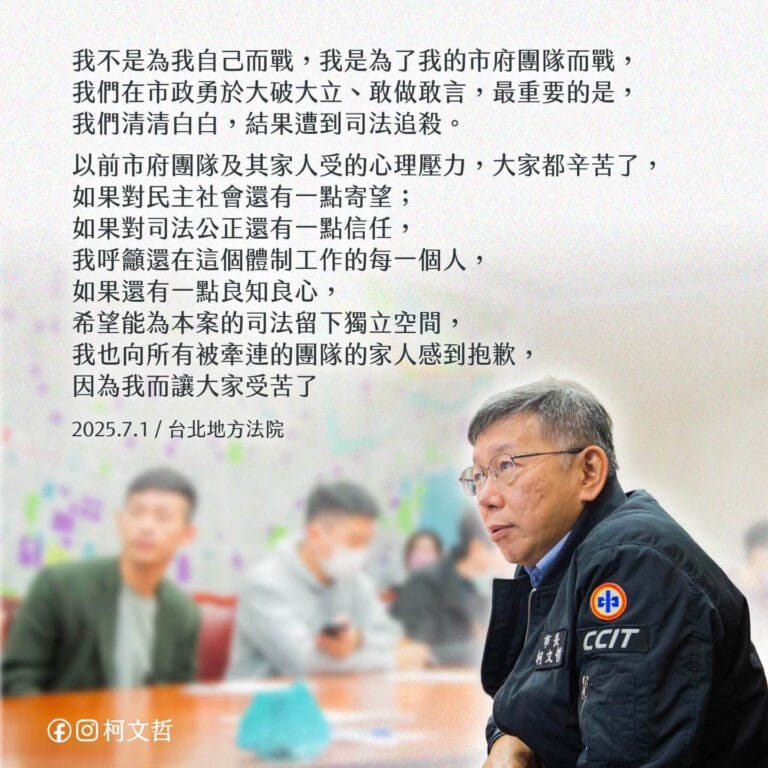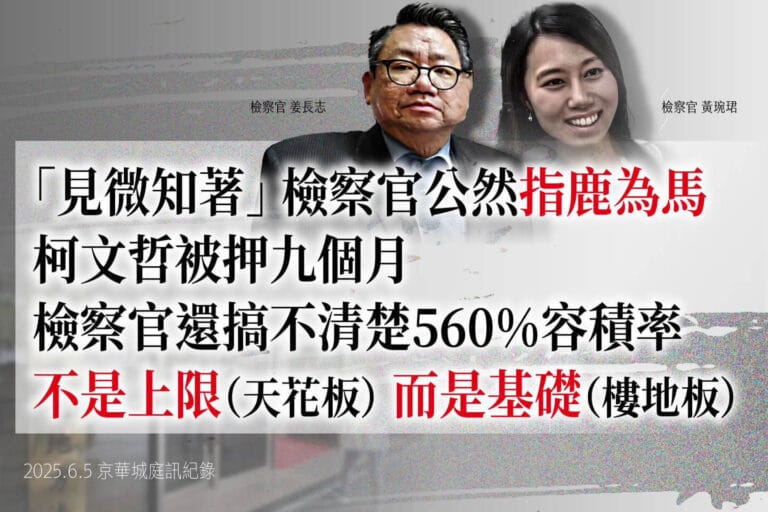Key Figure in the Case: Chung Wen-chih
Chung Wen-chih
Chung Wen-chih played a central role in the Taiwan Depositary Receipts (TDR) speculation case and was the primary defendant in the prosecution and sentencing. According to reports, Chung was the head of Lianyi Abalone and Motanli Investment Company. He was accused of illegally profiting up to NT$490 million by speculating on five tranches of TDRs, including those of Singapore’s Yangzijiang Shipbuilding Holdings Limited, between 2010 and 2011.
Due to his deep involvement, he was investigated by prosecutors, and the court convicted him in the first trial, sentencing him to 18 years in prison. On appeal, his sentence was slightly reduced to 17 years and 6 months. During the legal proceedings, he was required to wear an ankle monitor.
Finally, on March 12, 2025, the Supreme Court sentenced Chung Wen-chih to 30 years and 5 months in prison for seven counts of securities trading misconduct and money laundering, violating the Securities and Exchange Act. However, after the Supreme Court’s verdict was finalized, Chung reportedly went missing and is now considered a fugitive. Prosecutors have issued a wanted notice for his arrest.
The case has sparked controversy, particularly regarding legislative amendments. DPP legislators Yu Tian and Tsai Yi-yu proposed amendments to the Securities and Exchange Act to clarify the legal scope of TDR regulations. However, critics like Huang Kuo-chang have condemned this move, dubbing it the “Chung Wen-chih Clause,” suggesting that it is an attempt to absolve Chung.
Additionally, the judiciary has faced scrutiny over its handling of Chung’s case. The High Court’s failure to extend electronic monitoring after the expiration of his surveillance period has led to public concern over whether the judicial system is too lenient toward specific felons.

URGENT INVESTIGATION – CHUNG WEN-CHIH
Reason for Investigation: Fleeing in violation of the Securities and Exchange Act
Issuing Agency: Taipei District Prosecutors' Office, Taiwan
Charges: Violation of the Securities and Exchange Act
Reporting Unit: Taipei District Prosecutors' Office, Taiwan
Published in Special Issue Edition No.: 1140313-1
Yu Tian and the Controversy Over the Securities and Exchange Act Amendment
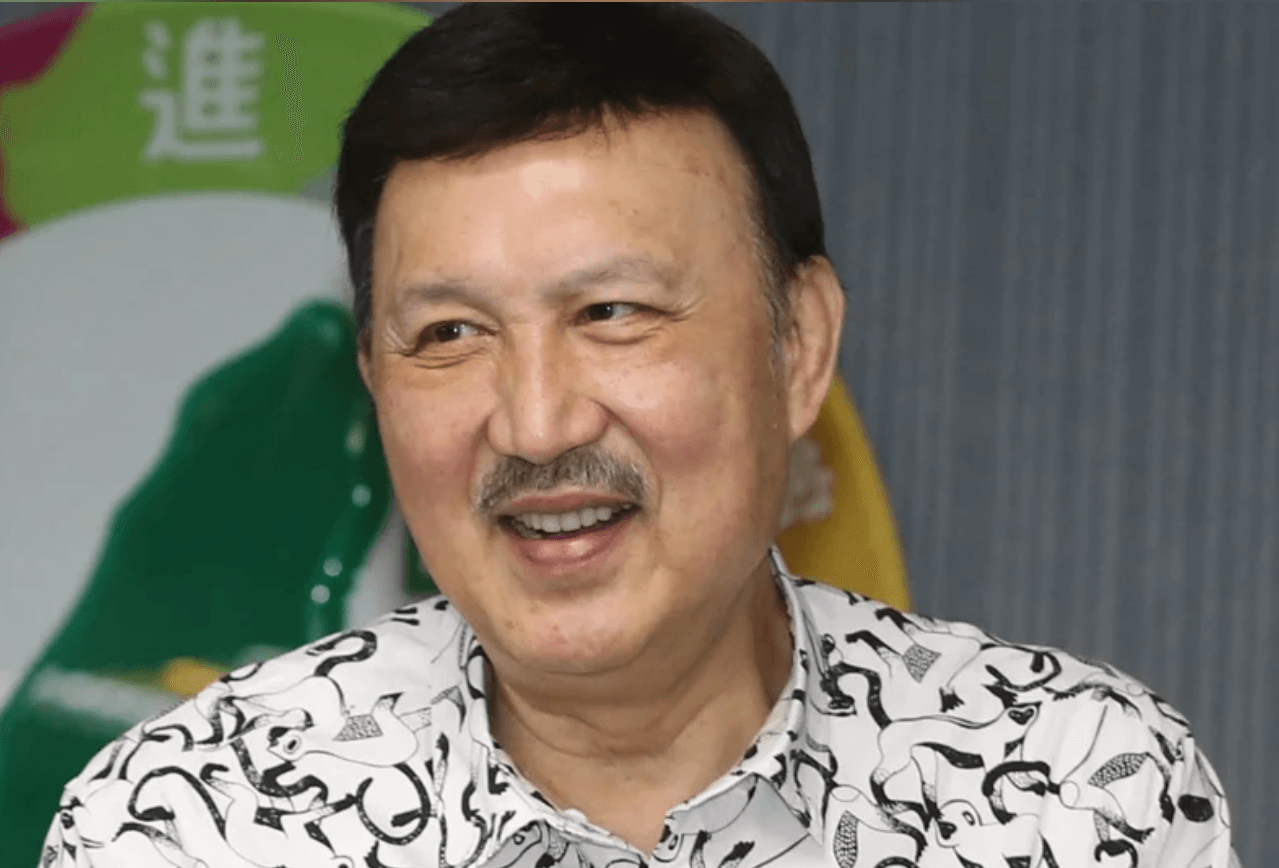
- Proposal to Amend the Law for Clarity
At the end of 2020, Democratic Progressive Party (DPP) legislator Yu Tian first proposed amendments to Articles 4 and 165-2 of the Securities and Exchange Act, arguing that Taiwan Depositary Receipts (TDRs) should be explicitly included in the law to improve regulatory clarity. He revisited the issue multiple times in subsequent years.
- Defending Chung Wen-chih
Yu Tian publicly voiced his concerns over the sentencing of Chung Wen-chih, who received 18 years in prison after the second trial for manipulating TDRs. He argued that the punishment was excessive, stating that “even murder and arson do not necessarily receive such long sentences.” He believed there were omissions and ambiguities in the existing law that needed correction.
- Questioning the Legal Status of TDRs
Yu Tian claimed that TDRs had never been explicitly defined under the Securities and Exchange Act, which was the basis for his amendment proposal. He pointed out that Article 165-2 was only revised in 2010, and that TDRs were classified as securities under Article 6 of the Act only in 2012.
- Citing the Control Yuan’s Investigation Report
In 2020, Yu Tian referenced an investigation report by the Control Yuan, which concluded that the Financial Supervisory Commission (FSC) had acted illegally and unconstitutionally in its past verification of TDRs. He suggested that these regulatory issues had led to wrongful imprisonment, with Chung Wen-chih being a prime example of such a case.
- Rebutting the FSC’s Position
Yu Tian accused the FSC of misrepresenting his amendment proposal as an attempt to aid Chung Wen-chih rather than a broader legal reform. He argued that the issue had implications for wrongful convictions beyond this case, constituting a serious human rights violation. He urged the Legislative Yuan to pass the amendment based on the principles of “no penalty without law” and “non-retroactivity of the law.”
- Allegations That the Proposal Was Designed to Exonerate Chung
Yu Tian’s amendment proposal sparked significant controversy. Legislators such as Huang Kuo-chang, Wu Ping-jui, and Chen Jiau-hua strongly opposed the bill, arguing that its real purpose was to exonerate Chung Wen-chih, who had been heavily sentenced for TDR speculation. They contended that if the law was amended, Chung’s defense team could argue that TDR was not explicitly defined as security at the time, making his conviction invalid under the Securities and Exchange Act.
- Repeated Failures to Amend the Law
Yu Tian’s efforts to pass the amendment repeatedly failed in the Finance Committee, as it failed to gain consensus among ruling and opposition lawmakers. Even in 2024, when other legislators introduced a similar amendment, it was rejected and returned back to the Procedure Committee due to its highly controversial nature.
Conclusion
Yu Tian was not directly involved in the TDR speculation case. However, as a DPP legislator, he actively pushed for amendments to the Securities and Exchange Act, leading to widespread suspicion that his true intent was to help Chung Wen-chih evade punishment. Despite his claims that the amendment was meant to clarify the law and protect human rights, the proposal ultimately failed.
Regulatory Context:
On September 12, 1987, the Ministry of Finance issued the following regulation:
- Securities and Exchange Act Article 6 (072.05.11)
Foreign stocks, corporate bonds, government bonds, beneficiary certificates, and other securities with investment characteristics—along with all related fundraising, issuance, trading, or investment services—shall be subject to the securities management laws and regulations of the Republic of China.
Tsai Yi-yu, then a legislator of the Democratic Progressive Party

- Accused of proposing amendments to the law again after Yu Tian:
Tsai Yi-yu was identified as the second legislator, after Yu Tian, to introduce a draft amendment to the Securities and Exchange Act in the new session of parliament. This move was heavily criticized as an attempt to exonerate Chung Wen-chih. It drew strong condemnation from Taiwan People’s Party legislator Huang Kuo-chang, who described it as a “shameful case exoneration amendment.”
- The motive for the proposal claims to be for legal clarity:
Tsai Yi-yu explained that the proposed amendment was prompted by a report from lawyer Huang Ti-ying, who argued that ambiguities in the current Securities and Exchange Act regarding Taiwan Depositary Receipts (TDRs) could violate the principle of legal clarity. Huang hoped Tsai would submit the proposal to allow room for further legal discussion. Tsai Yi-yu also noted that although the Financial Supervisory Commission (FSC) opposed the proposal, Huang Ti-ying believed similar amendments had been introduced in the past and wished to raise the issue again so that the controversial elements of this case could continue to be debated at the legal level.
- Met with Chung but denied recent contact:
Tsai Yi-yu admitted that he had met with Chung Wen-chih in his office six or seven years ago, through arrangements made by lawyer Sun. However, he emphasized that they had not seen each other in the five years following that meeting, and that he was not involved in the last Legislative Yuan when Yu Tian proposed the previous amendment.
- The proposal was eventually returned:
Despite Tsai Yi-yu’s claim that the amendment aimed to clarify legal definitions, it was ultimately rejected and returned to the Procedure Committee due to strong opposition from Huang Kuo-chang and others, along with significant public pressure. Huang Kuo-chang remarked that the proposal was so controversial that “even the DPP caucus did not dare to defend it.”
- He once said that Chung Wen-chih ‘did not kill people nor set fires’:
According to Huang Kuo-chang, when Tsai Yi-yu previously promoted the amendment on Chung Wen-chih’s behalf, he stated that “he did not kill people nor set fires,” suggesting that Chung’s actions were not serious enough to warrant such a lengthy sentence. This was seen as an attempt to justify the legal amendment.
- Being seen as meddling with ‘people with alternative intentions’:
Huang Kuo-chang publicly advised Tsai Yi-yu to stop associating with individuals who might have ulterior motives.
Conclusion
Tsai Yi-yu was not directly involved in the TDR speculation case. However, during his tenure as a DPP legislator, he was accused of proposing another amendment to the Securities and Exchange Act following Yu Tian’s earlier efforts. The intent behind his proposal was widely questioned as a potential attempt to help Chung Wen-chih—who had been heavily sentenced for TDR speculation—escape punishment. Tsai Yi-yu maintained that his intent was to improve legal clarity, but the proposal was ultimately unsuccessful.
In response to the recent TDR controversy, the FSC reiterates its position on upholding fairness and justice in the capital market
Taiwan Depositary Receipts (TDRs) are certificates that represent the stock rights of foreign companies. They were officially recognized as securities by the former Securities Regulatory Commission of the Ministry of Finance, in accordance with Article 6 of the Securities and Exchange Act, on September 12, 1987 (Document No. 76 Tai Tsai Cheng (II) Tzu No. 00900). This recognition meets the requirements of constitutional authorization and legal clarity. The Act also clearly defines the constitutive elements and criminal liabilities for various types of securities-related violations, aligning with the principles of “no penalty without law” and the “clarity of punishment.” This remains the unanimous position of the Financial Supervisory Commission (FSC).
Timeline
Illegal Profits Amounted to NT$490 Million
Chung Wen-chih speculated on five Taiwan Depositary Receipts (TDRs), including the TDR of Yangzijiang Shipbuilding Holdings Limited, making illegal profits of up to NT$490 million.
Investigation and Filing of the Case
The prosecution and investigation unit launched an inquiry into Chung Wen-chih’s involvement in manipulating TDRs.
Absconded While on Bail
Chung Wen-chih fled while out on bail, evading legal proceedings.
Commitment to Enact Laws Regulating Bail Jumping
During a National Affairs Conference on Judicial Reform, the DPP administration pledged to introduce legislation addressing criminal cases of absconding while on bail.
Parole
Chung Wen-chih was released from prison on parole.
First Trial Judgment
In the first trial of the TDR case, Chung Wen-chih was sentenced to 18 years in prison. Dissatisfied with the verdict, he filed an appeal.
Second Trial Verdict Modified
In the second trial, Chung Wen-chih's sentence was reduced to 17 years and 6 months. Additionally, the court ordered him to wear an electronic ankle monitor.
Legislator Yu Tian Proposed an Amendment to the Law
Legislator Yu Tian proposed an amendment to the Securities and Exchange Act to explicitly include TDRs within its legal framework. However, Huang Kuo-chang questioned whether this was an attempt to exonerate Chung Wen-chih, and the proposed amendment was not passed.
Legislator Tsai Yi-yu Proposed Another Amendment
Legislator Tsai Yi-yu introduced a similar amendment, arguing that it would clarify the law. However, the proposal was again met with skepticism and was ultimately returned.
Chung Sentenced to 30 Years and 5 Months in Prison
The Supreme Court rejected Chung Wen-chih’s appeal, upheld the second-trial verdict, and sentenced him to 30 years and 5 months in prison.
Chung Wen-chih Absconded; Prosecutors Issued a Wanted Notice
Following the Supreme Court’s ruling, the court lifted Chung Wen-chih’s electronic ankle monitor. He then absconded, prompting the Public Prosecutor’s Office to issue a wanted notice.
News Links

"Hyped TDR Case: Sentenced to Over 30 Years – ‘Abalone Tycoon’ Chung Wen-chih Now Wanted"
World Journal - Taiwan News, 2025-03-14
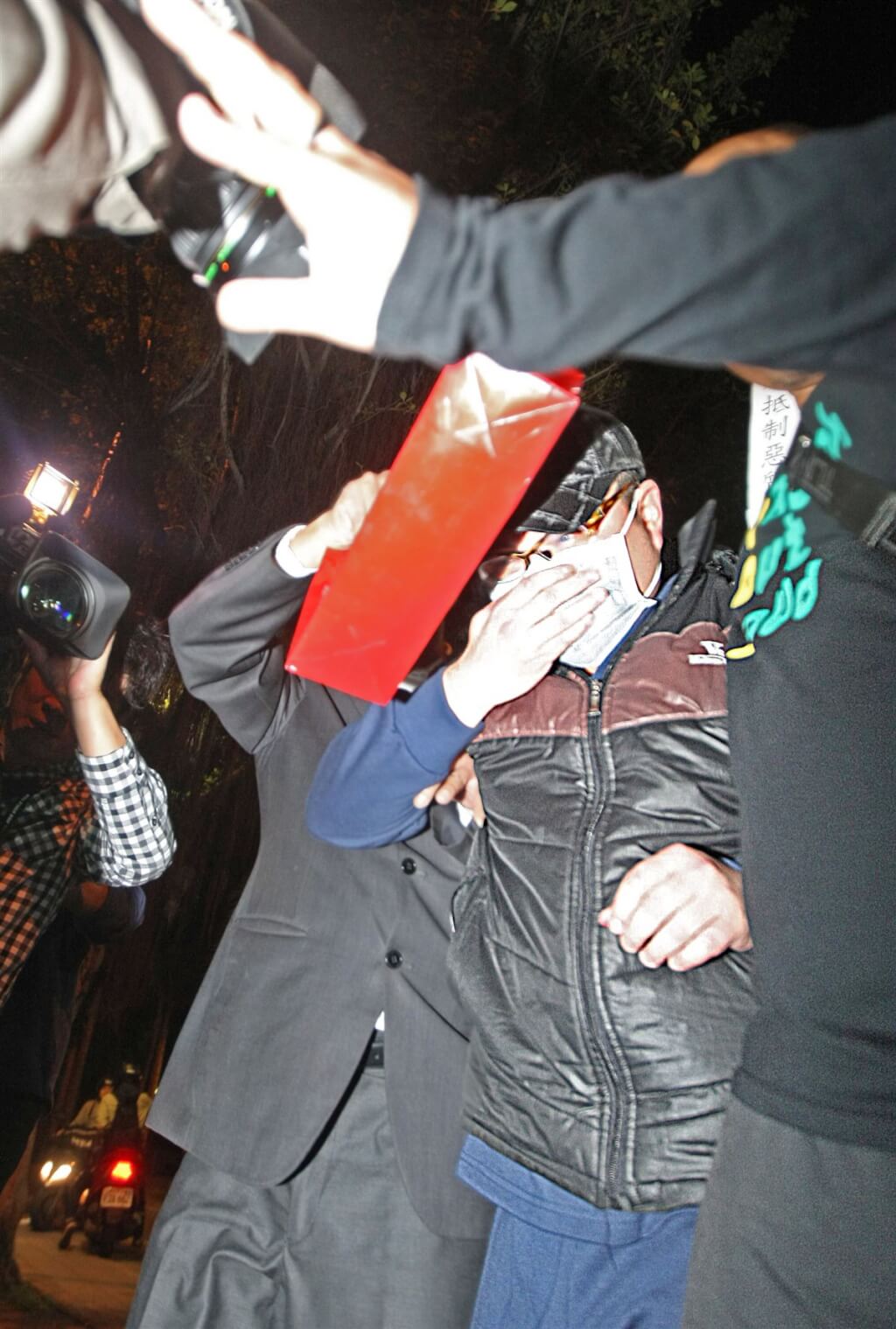
"Chung Wen-chih Abandoned Bail and Absconded – Taipei District Prosecutor’s Office: Chung’s Passport Has Been Cancelled, Full Pursuit Underway"
Central News Agency, Taipei, 2025-03-17
Relationship Diagram – Figures Involved in the Case
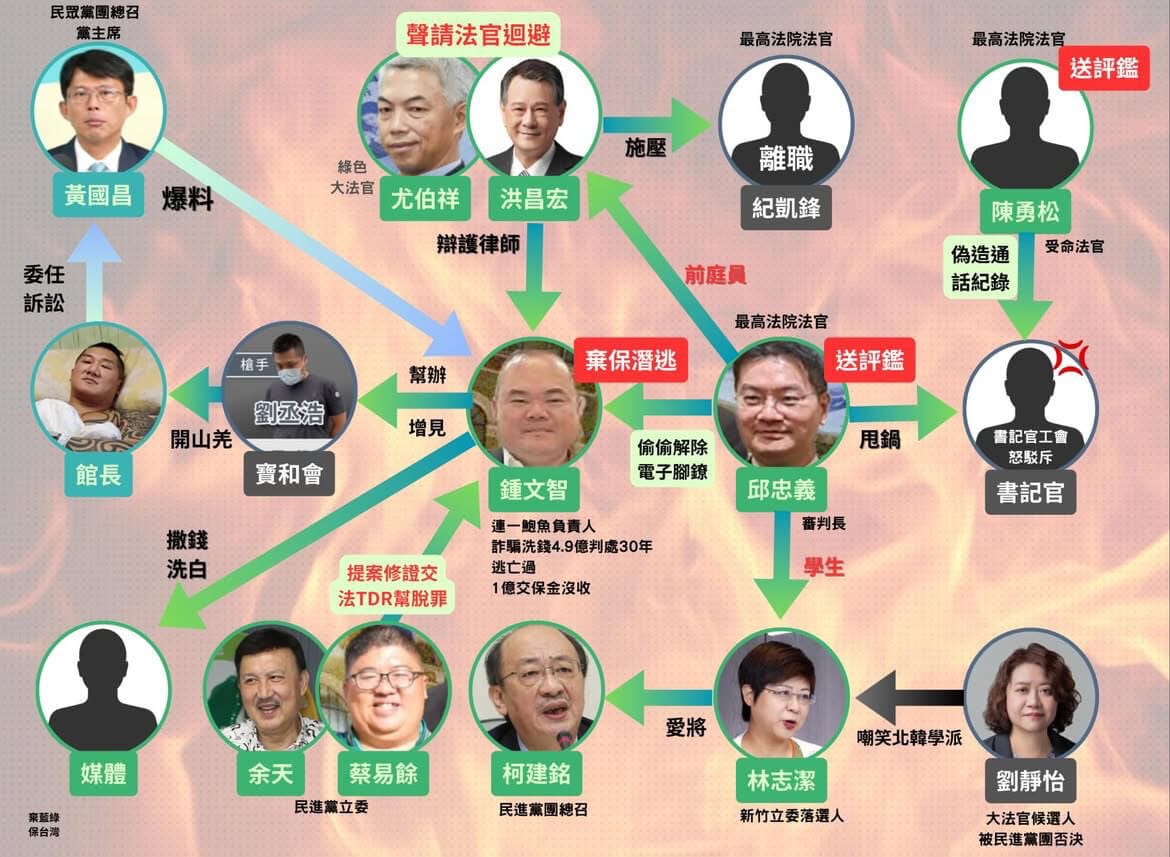
Videos
Chung Wen-chih Jumps Bail and Flees; Judicial Yuan and Ministry of Justice Pass the Buck to Each Other
2025-03-26 | Judiciary and Organic Laws and Statutes Committee
Taiwan Salt Green Energy hollowed out 860 million yuan|Chen Qiyu|Green magnates invested in White Glove Company
Lorem ipsum dolor sit amet, consectetur adipiscing elit. Ut elit tellus, luctus nec ullamcorper mattis, pulvinar dapibus leo.
Learn more
When those in power lose credibility and associate with individuals who have made illegal profits, while national resources dwindle and public debt increases, taxes on the people continue to rise, social welfare construction deteriorates, and the nation’s strength declines year by year—how can we protect our homes and defend our country?
Chung Wen-chih’s Profits Could Buy 5 Million Bento Boxes
The People's Window – Corruption Case Converter - When the rich and powerful greedily profit through illegal means, the hard-earned savings of everyday investors vanish overnight.
Summary of Chung Wen-chih’s Case
Chung Wen-chih was suspected of multiple financial crimes, notably speculating in Taiwan Depositary Receipts (TDRs), which harmed many investors. He once jumped bail and fled during the investigation, but was later recaptured. After the final verdict was issued, he absconded once again.
Suspected Political Involvement
Huang Kuo-chang repeatedly stated in live broadcasts that Chung Wen-chih maintained close ties with DPP (Green Camp) elites. He revealed that some DPP legislators—including Tsai Yi-yu, who was once approached by a lawyer—proposed amending the law during Chung’s trial, allegedly to help exonerate him. Although Tsai Yi-yu claimed he had not seen Chung in five years, the intent behind the amendment was still questioned.
Problems Within the Judicial System
Huang Kuo-chang questioned whether the Division-Chief Judge of the High Court pressured the trial judge to recuse himself and whether the Supreme Court exerted continued pressure even after the recusal application was rejected. Additionally, although Chung was placed under electronic surveillance before his sentence was finalized, the monitoring was later lifted, ultimately allowing him to flee. Responsibility for lifting the surveillance was passed between the Judicial Yuan and the Ministry of Justice.
Prison Management Controversy
Huang Kuo-chang revealed that Chung Wen-chih used his influence to arrange for the boss of the Pao-He Club to visit prisoners involved in a shooting case, raising suspicions that the prison warden was involved in unlawfully approving these special interviews.
Legal Loopholes and Government Inaction
Huang criticized the DPP administration for promising in 2017—at the Judicial Reform Meeting during the National Affairs Conference—to enact laws addressing bail jumping. However, the legislation has yet to be completed, allowing repeat offenders like Chung to exploit legal gaps and escape justice. The Ministry of Justice has stated only that the matter is still under discussion.
Controversy Over Prosecutorial Conduct
Huang Kuo-chang raised concerns about how the Taipei District Prosecutor’s Office handled the Ko Wen-je case, in which a witness, Shen Ching-ching, was allegedly interrogated without following proper procedure. He pointed out inconsistencies in the official press release, and questioned whether the prosecutors in Chung Wen-chih’s case were genuinely committed to pursuing his arrest.Huang believes that Chung Wen-chih’s case reveals systemic issues—including possible corruption, legal loopholes, and political interference—that undermine judicial fairness and erode public trust in Taiwan’s legal system. He pledged to continue holding responsible parties accountable and to promote relevant legal reforms. Currently, Chung’s passport has been revoked, and prosecutors are pursuing his arrest with full force.
The Impact of Fraudsters Like Chung Wen-chih Escaping Justice
The most immediate impact of this case is that victims have no way to recover their losses. Chung Wen-chih was accused of manipulating TDRs to defraud investors, making illegal profits of up to NT$490 million. While investment and financial management inherently involve risks, if criminals can escape legal consequences and keep their illicit gains, the nation is thrust into a fiscal crisis.Worse, the losses incurred by victims are not tax-deductible. The hard-earned assets of individual investors are stolen repeatedly. In some cases, these illicit funds are even used to bribe foreign agents or government officials in efforts to cover up the crimes—an outright injustice that shackles the future of every citizen.
Why Do Criminals Keep Getting Away? What’s Wrong with Our Judicial System?
Because loopholes in the law and inaction by certain institutions allow them to take advantage of the system! During an interpellation at the Legislative Yuan, Huang Kuo-chang pointed out that Chung Wen-chih had already escaped once in 2016, and now he’s absconded again. This highlights a serious weakness in Taiwan’s ability to prevent felons from fleeing while on bail. Even more absurd is the fact that the DPP administration pledged as early as 2017 to create laws targeting bail-jumpers, but as of 2025, the legislation is still under discussion with no progress. Huang criticized the Ministry of Justice for not submitting the draft to the Legislative Yuan despite eight years of deliberation, questioning whether the government is truly committed to resolving the issue. He also questioned why Chung was released from electronic monitoring and how both the Judicial Yuan and the Ministry of Justice continue to shift blame, further undermining public trust in the judicial system.
Did Legislators Really Try to Help Criminals Escape Accountability by Amending the Law?
Yes, they did! As documented, former DPP legislators Yu Tian and Tsai Yi-yu both proposed amendments to the law in ways that appeared to benefit Chung Wen-chih. In a live broadcast, Huang Kuo-chang revealed that during the previous Legislative session, there were efforts to pass amendments aimed at exonerating Chung Wen-chih. At that time, the attempt was blocked. Huang named Tsai Yi-yu as the sponsor of the amendment and noted that Yu Tian also promoted it. These actions provoked strong criticism from Huang, who questioned whether the legislators had received improper benefits, and condemned amending the law to help financial criminals. While Tsai Yi-yu denied any personal connection to Chung, the mere existence of such amendments raises public concern about whether justice is being skewed in favor of the powerful, at the expense of ordinary citizens' rights.
Similar Cases
No posts found!

